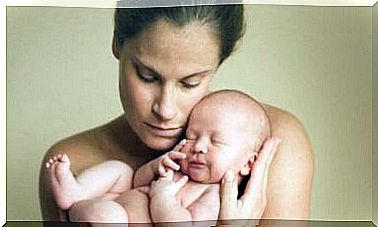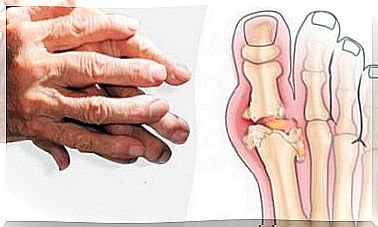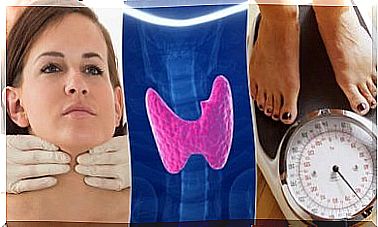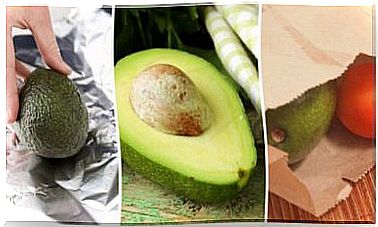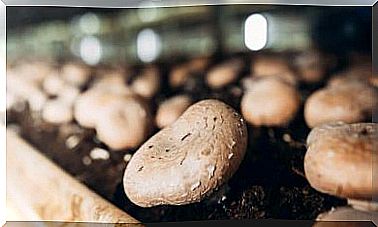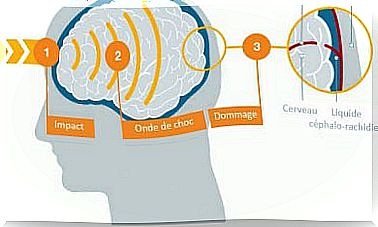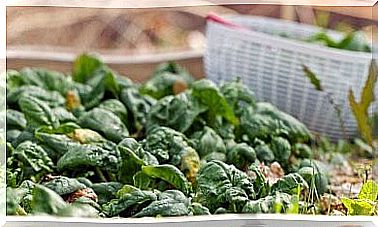Why Is Nutrition During Pregnancy Important?
Good nutrition during pregnancy is one that meets the nutritional needs of both mother and fetus. It’s not just about eating more, but choosing foods that meet the requirements of this step.
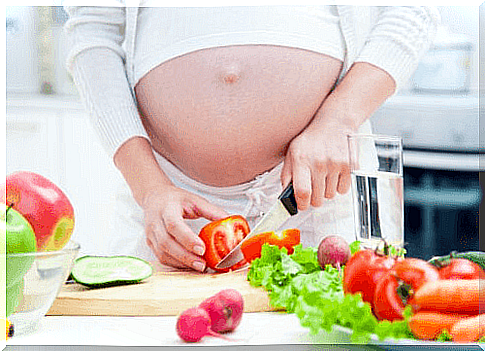
Nutrition during pregnancy is crucial for the good health of mother and baby. A normal diet is not enough to meet the needs of gestation and the lack or excess of food causes countless problems.
There are many myths about this. Yet nutrition during pregnancy is one of the basic pillars for:
- Meet the nutritional needs of the fetus
- Meeting the demands of the mother’s body
- Allow the synthesis of milk during gestation
It is not necessary to eat twice as much, as it is commonly said. But you have to choose the quantity and quality of nutrients that are ingested. Food during pregnancy must respond to the new biological balance that is imposed by being pregnant with a new life.
The importance of diet during pregnancy
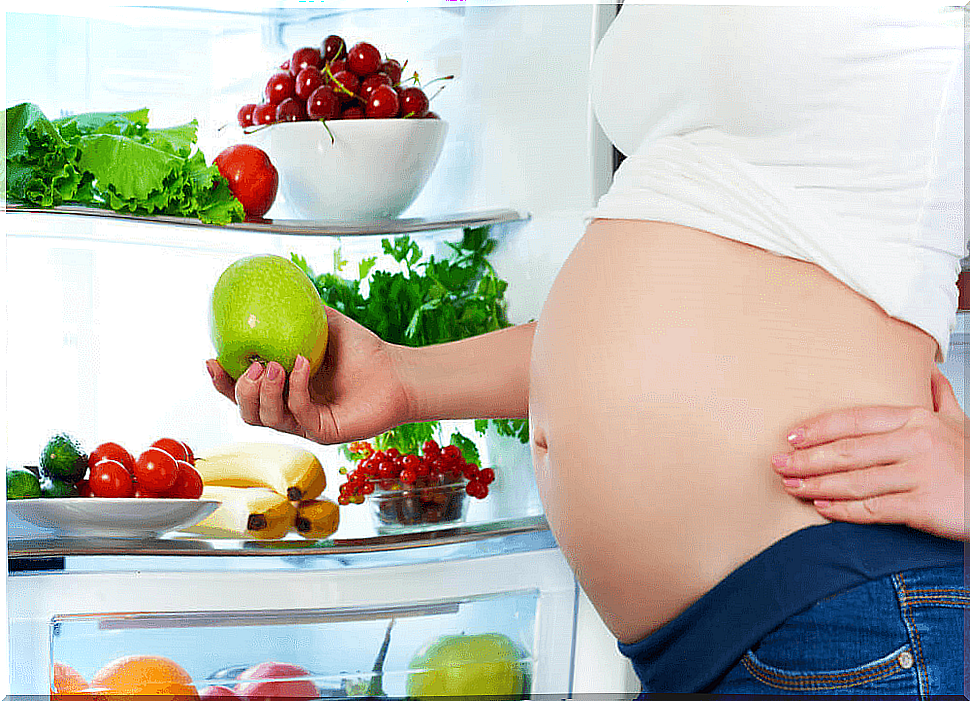
Nutrition during pregnancy is directly related to the good health of the baby, both in the womb and after birth. Poor nutrition at this stage can lead, for example, to premature labor or low birth weight.
Good nutrition not only affects the proper development of the fetus, but also the quality of the placenta. It also helps maintain a good level of energy for childbirth and postpartum, activates the production of breast milk and prevents anemia.
Maternal obesity, on the other hand, is associated with a higher risk of developing high blood pressure, liver disease, or gestational diabetes, and the need for a cesarean section.
Children of obese mothers are more likely to suffer from macrosomia (excessive height at birth) and chronic noncommunicable diseases (NCDs).
Every mother’s situation is different, so it’s important for every mother to ask her doctor about her specific nutritional needs. Ideally, the indicated diet should be adapted to the tastes and possibilities of access to food of each pregnant woman.
Essential nutrients
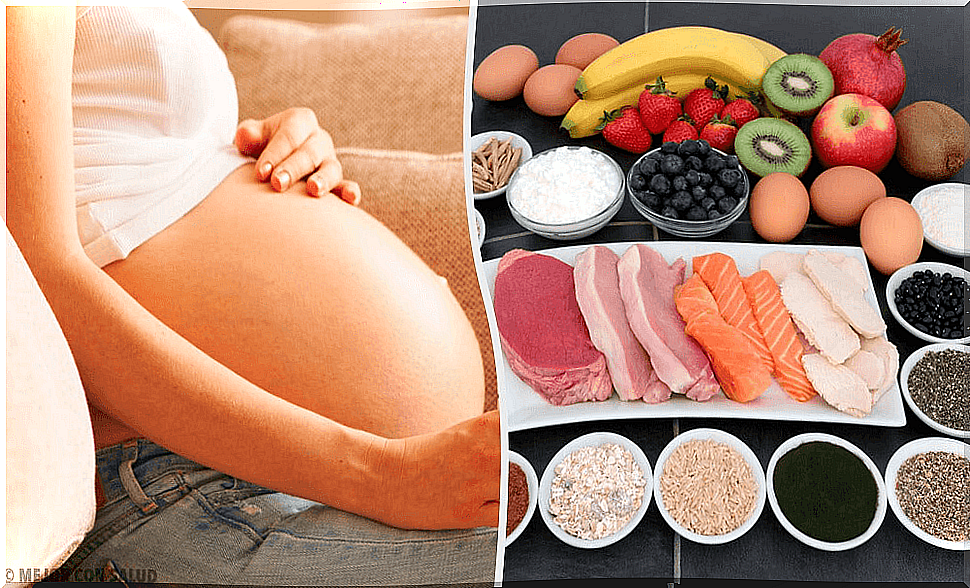
In general, the diet during pregnancy should be in the following proportions:
- Between 15 and 17% should be protein.
- Carbohydrates should make up 53% of the diet.
- The fat should be 30%.
- Vitamins and minerals should be taken in small amounts.
Essential nutrients therefore include:
- Carbohydrates : they mainly provide energy. They are found in foods such as rice, pasta, whole grains, legumes, potatoes, and fruits.
- Proteins : they have a decisive influence on the development of the baby and its weight at birth. They also compensate for the growth of maternal organs such as the uterus and breasts. It is advisable to consume 80 grams of protein per day during the first trimester of pregnancy. Then, 100 grams until delivery. And 120 during breastfeeding.
- Fats : suitable fats protect the body, transport vitamins, contribute to the formation of hormones and are a source of energy. The right thing to do is eat a good amount of unsaturated fat and minimal amounts of saturated fat.
Other fundamental nutrients
Besides the essential nutrients, there are also other foods which are essential during pregnancy and which basically correspond to minerals and vitamins. These are the following:
- Calcium : The diet during pregnancy should include at least 120 grams of calcium per day. This intake can be covered by four servings per day of foods such as milk, yogurt, cheese or cottage cheese -ricotta or faisselle. Calcium is also found in whole grains, legumes and green vegetables.
- Iron : it is not so necessary during the first trimester of pregnancy, but it is decisive thereafter. It should be consumed daily to avoid anemia and low birth weight. The doctor will indicate if a pharmacological supplement is necessary.
- Other minerals : it is advisable to consume foods containing phosphorus for the proper development of the baby’s bones. But also potassium and zinc to protect and promote the development of the nervous system.
- Vitamins : A good diet during pregnancy should include foods rich in vitamin A, B, C and D. All of these contribute to the development of different organs and functions in the baby’s body and maintain the biological balance in the baby’s body. the mother.
